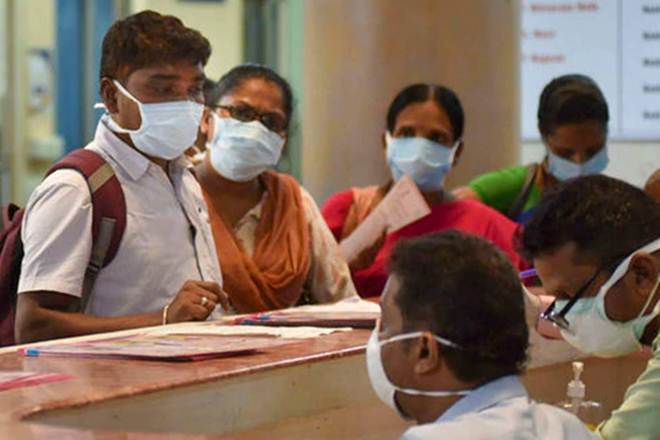Face covers are to be worn at all times at work or public spaces; those found spitting in public spaces will be fined; all workplaces will have to screen employees for temperature and ensure social distancing.
These are among the guidelines for COVID-19 management issued by the ministry of home affairs on Wednesday.
While these measures will be applicable to those sectors that have been granted exemptions under the MHA guidelines currently, they also are a window into the kind of measures the country could see in place over the next few months as it fights the spread of the novel coronavirus.
The guidelines, which have as annexures ‘National Directives’ as well as ‘Standard Operating Procedure for Offices, Workplaces, Factories and Establishments’, will be enforced by district magistrates across the country through fines and penal action under the Disaster Management Act, 2005.
Overarchingly, the guidelines emphasise the need for sanitation, temperature checks, and social distancing. While specific states have taken some of these measures, such as mandating the use of masks and a ban on spitting in public, these guidelines now mean that the rules apply nationwide, with legal enforcement under the Disaster Management Act.
As part of the national directives, the guidelines state that wearing a face cover is now compulsory in all public and office spaces and gatherings such as weddings or funerals. Also, the directives say, “spitting in public spaces shall be punishable with fine” and there “should be a strict ban on the sale of liquor, gutka, tobacco etc”.
As part of the SOP for offices, workplaces and factories, the guidelines prohibit large meetings, and say anyone entering or exiting the work place must undergo thermal scanning.
“For workers coming from outside, special transportation facility will be arranged without dependency on public transport, and these vehicles should only be allowed to work at 30-40 per cent capacity,” the document reads.
The guidelines also make it mandatory for workers to have medical insurance, discourage large meetings of 10 or more people and say not more than 2-4 people, depending on the size, will be allowed to use elevators at once.
Work spaces must also ensure staggered lunch breaks, a one-hour gap between shifts and carry out sanitisation between shifts.
“Persons above 65 years of age and persons with co-morbidities and parents of children below the age of 5 may be encouraged to work from home,” the guidelines say.
For manufacturing establishments, the guidelines mandate hand washing and “frequent cleaning” of common surfaces.
The guidelines also say that hospitals or clinics, which are authorised to treat COVID-19 in nearby areas should be identified, and lists should be made available at all times.
The guidelines also push for the use of the Aarogya Setu app for all private as well as the public sector employees.









